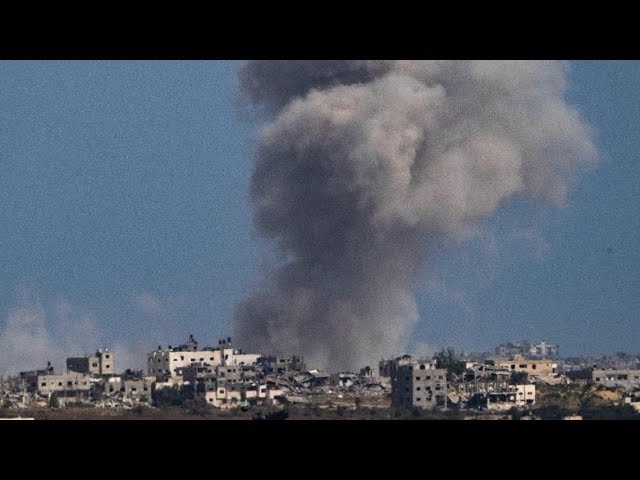Rafah faces severe disruptions as Israeli military actions escalate, leading to significant civilian displacement and aid challenges
The situation in Gaza’s Rafah region has become increasingly dire as Israeli military operations continue to escalate, intensifying the hardships faced by Palestinian residents. Over the past week, the Israeli Defense Forces (IDF) have concentrated their efforts in Rafah, which they describe as a key stronghold of Hamas militants. This military focus has led to widespread displacement and a significant humanitarian crisis. According to the United Nations, approximately 360,000 Palestinians have been forced to flee their homes in Rafah, seeking refuge from the ongoing conflict. This displacement represents a substantial portion of the pre-operation population of 1.3 million people in the area. The intense military operations, including airstrikes and ground incursions, have not only disrupted the lives of thousands but also severely hampered humanitarian efforts. Aid agencies are struggling to provide necessary supplies due to the closure of main crossings and the ongoing conflict, creating a desperate situation for those affected.
AP News Coverage:
AP News reports on the worsening conditions in Rafah, Gaza, where Israeli military operations have significantly intensified. According to the report, Israeli forces are carrying out what they term a “limited operation” aimed at dismantling militant infrastructure, particularly tunnels along the Egypt-Gaza border. This has led to heavy bombardment and ground activities in and around Rafah, causing massive displacement of civilians. The United Nations has highlighted the dire situation, noting that around a fifth of Gaza’s total population has been displaced in just the past week. Humanitarian aid has been severely affected, with main supply crossings like Rafah and Kerem Shalom either closed or inaccessible due to the fighting. This blockade has resulted in a critical shortage of essential supplies like food and medical aid. Aid workers, as reported by AP, are finding it increasingly difficult to distribute the dwindling resources, with many areas running out of food entirely. The situation is exacerbated by Israeli protesters who have attacked aid convoys, further complicating relief efforts. The humanitarian crisis is compounded by the infrastructure damage across Gaza, estimated at $210 million, particularly to water and sanitation facilities, leading to fears of disease outbreaks as summer approaches.
Times of Israel Coverage:
The Times of Israel focuses on the strategic military aspects of the situation in Rafah. It reports that the United States believes Israel has positioned enough troops around Rafah to initiate a full-scale ground operation. This military buildup comes despite international warnings, including from the U.S., about the potential humanitarian impact. The IDF has urged evacuations in certain Rafah neighbourhoods, suggesting imminent military actions. The report also touches on the broader geopolitical implications, noting that any escalation could affect international relations and the dynamic between the U.S. and Israel. The potential for a large-scale operation has raised concerns about the long-term objectives of the Israeli military in Gaza, with the U.S. administration urging Israel to link its military actions to a clear and achievable endgame.
CNN Coverage:
CNN provides a comprehensive overview of the developments in Rafah and the broader Gaza conflict. The report details the U.S. administration’s perspective on Israel’s military buildup around Rafah, indicating significant apprehension about a potential full-scale incursion. Senior U.S. officials are quoted expressing doubts about the efficacy and wisdom of such a move, given the already severe humanitarian situation. CNN highlights the conflicting strategies between the U.S. and Israel, with U.S. officials questioning the possibility of achieving a definitive victory over Hamas through military means alone. The report also covers the humanitarian aspects, noting disruptions to aid deliveries and the dire conditions faced by displaced Palestinians. It emphasizes the urgent need for a ceasefire and a shift towards a more sustainable and politically oriented resolution to the conflict, reflecting broader international concerns about the long-term stability of the region.
